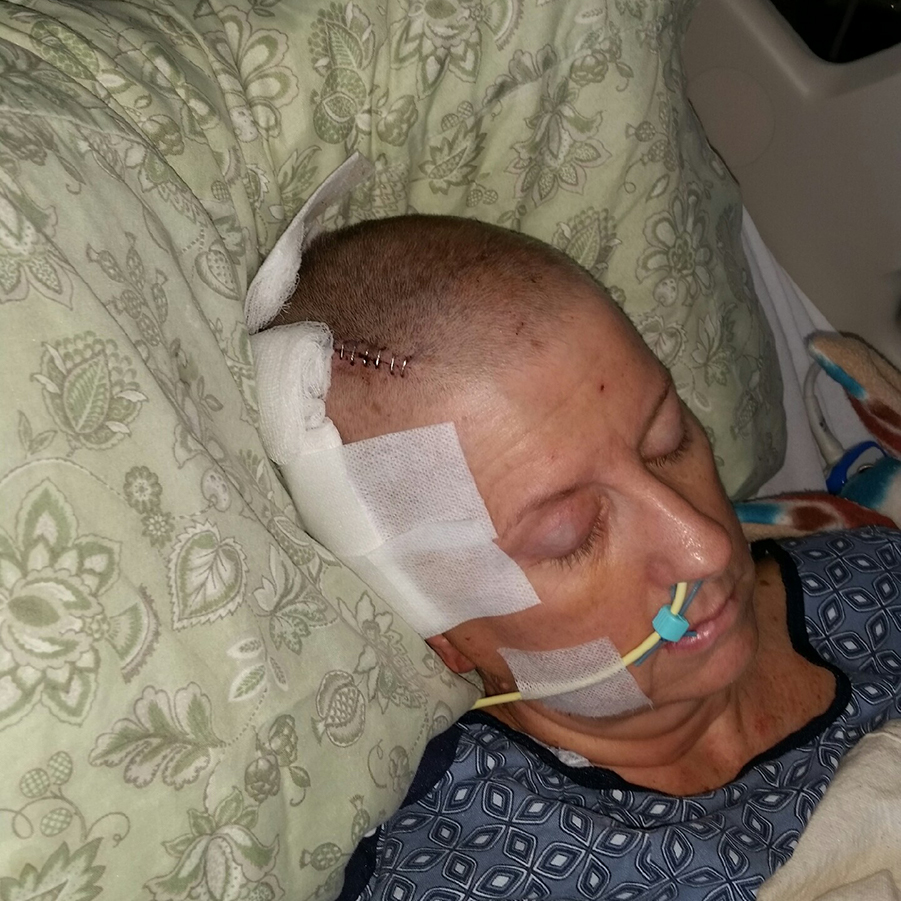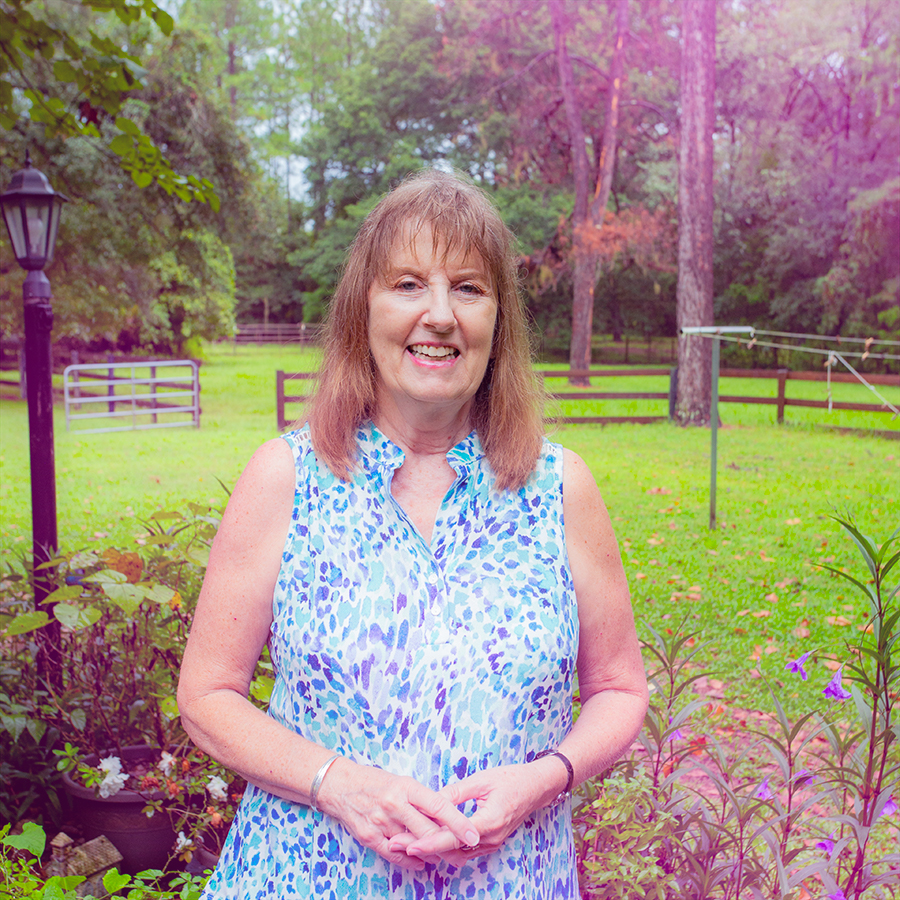Overcoming a Severe Brain Injury
Overcoming a severe brain injury.
I never saw it coming.
The kick in the head that turned my life into “before” and “after” took me completely by surprise.
I remember leading my horse up for evening feeding. The next thing I recall was lying in the dirt about 30 feet from the gate. I didn’t know how long I’d been unconscious.
The hand I put up to the right side of my head was covered with sand and blood.
I was feeling no pain and didn’t grasp how seriously I was injured.
I pulled out my phone to call a neighbor for help, but the touchscreen wouldn’t work because it was covered with blood.
I couldn’t walk but managed to crawl out of the field and onto my porch. Eventually, I crawled inside and laid on the couch.
I kept trying to call for help.
About 11pm, I got a call through. My neighbor walked over, took one look at me, and called 9-1-1. By the time the ambulance arrived, I could no longer see because my brain was swelling.
I underwent life-saving emergency surgery in the early morning hours.
The neurosurgeon later told me the damage was so severe that he picked pieces of my skull out of my brain.
Somehow, I had been kicked in the head and the right side of my skull caved in from the impact. The official diagnosis: penetrating depressed skull fracture and subdural hematoma (brain bleed).
Hospital records described me as “incapacitated.” I had no control of my bodily functions, my speech was slurred, I couldn’t walk, and my left side was partially paralyzed. My left arm was strapped into a brace to keep my hand from curling up.
My two brothers flew in from out of state. At that point, my family and friends didn’t know if I would live.
Neither did I.
“I’m going to be okay, aren’t I?” I asked my neurosurgeon during his morning visit.
“We don’t know,” Dr. Roper said.
I thought, “Wow, he really needs to come up with a better answer.”
The truth is he really didn’t know.
Months later at a follow-up visit, he explained that the type of injury I’d sustained is rarely seen outside a combat zone.
And he admitted that my recovery was a miracle. He told me bluntly, “Most people don’t survive what happened to you.”
Recovery journey
After 10 days, I was transferred to a rehab hospital.
Recovery became my full-time job.
I’ll never forget the first time I walked 30 steps. I lurched along, supported by therapists in front and back, clutching a railing with my right hand. It wasn’t pretty, but I was walking.
It’s not uncommon for neurosurgeons to piece broken skulls back together, but mine was too shattered. After my first surgery, there was nothing but a layer of scalp covering my brain in that area. I had to wear a protective helmet any time I wasn’t in bed or a wheelchair.
Miraculously, after just over three weeks in the rehab hospital, I was released to return home. One of my physical therapists said I’d re-learned what it takes a toddler two to three years to learn.
Two months later I was back in the hospital for a cranioplasty to fill in the big hole caused by the hoof impact.
This second brain surgery wasn’t as extensive, but it was not an easy recovery and more painful than anticipated. At least I was done with the helmet!
Thankfully, I had lots of support. And I needed all the help I could get.
Being self-employed, I had no income since I couldn’t work. The kindness and generosity of many people made it possible to pay my bills until I returned to writing full time in early 2020.

Asking Why
I’ve had horses in my life for nearly 50 years and that particular horse for 16 years. I’d never thought of him as dangerous even though his personality changed, and he became overly reactive due to medications used to treat a serious respiratory condition.
Although my veterinarian and close friends supported my difficult decision to have him put down, this was heartbreaking to deal with as I was recovering.
“Have you asked God why He let this happen?” a friend wondered.
I have a simple answer: we live in a broken world. But if we belong to Jesus, nothing comes into our lives without passing through the hands of our Father. I don’t have to “understand” to trust Him.
When I was in ICU, the neurosurgeon told one of my visitors, “Someone way bigger than me is working on her behalf.”
He still is.
I realize that God’s earthly plans for me were not complete as of April 15, 2019. Every day, I thank Him for healing my brain and that I’m still here. He literally walked me though the valley of the shadow of death and out the other side.
Photos by: Nicole Hamel

